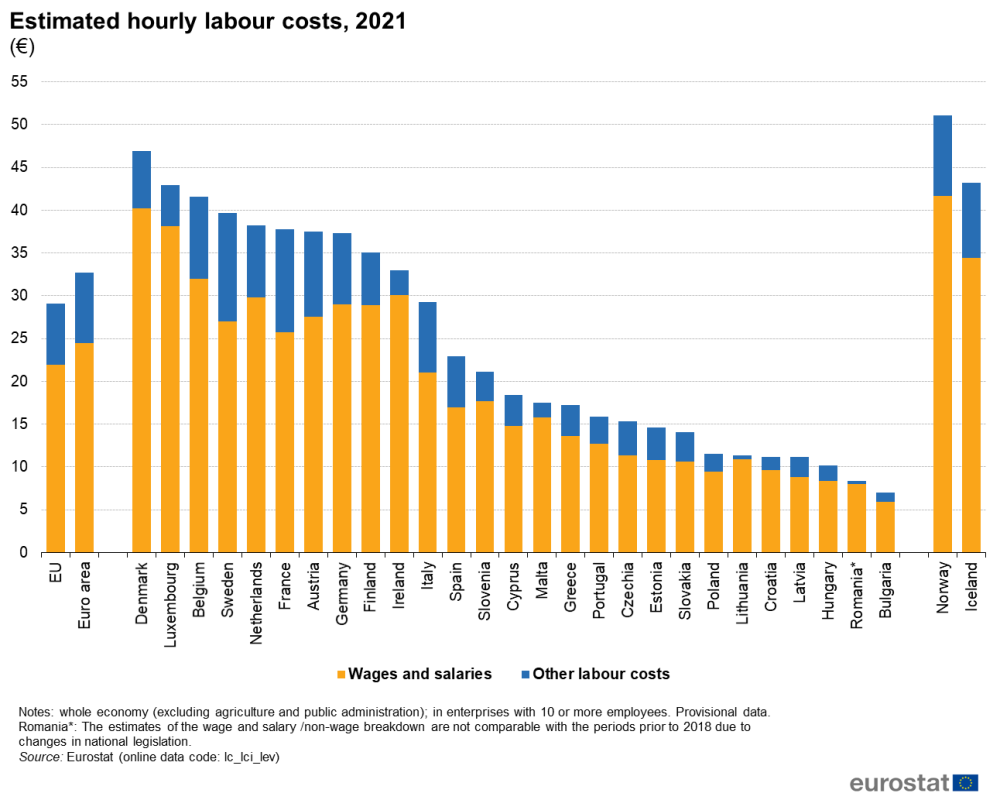The labour cost — the average cost in Belgium to employ staff — was the third highest in Europe in 2021, according to the latest figures from the European statistics office Eurostat.
Labour cost does not reflect how much an employee will be paid every month but is the total cost borne by employers for employing staff. With an average estimated cost of €41.6 per hour, Belgium once again ranks in third place, following Denmark and Luxembourg, where the average labour cost is €46.9 and €43 respectively.
The hourly labour cost in euros increased by 1.1% since 2020 and has risen from €32.9 per hour in 2008. Belgium's average labour cost is also higher than the EU and EA (euro area) average, which sat at €29.1 and €32.8 respectively.
This cost includes employee compensation (such as wages, salaries in cash and in-kind, employers’ social security contributions), vocational training costs and other expenditures such as recruitment costs, spending on working clothes and employment taxes regarded as labour costs. It also determines businesses' competitiveness.
Comparing countries
Compared to Belgium's neighbouring countries — and its most important trading partners, Belgium still remains more expensive. The average labour cost is €38.3 per hour in the Netherlands, €37.9 in France and €37.2 in Germany.
The EU average masks a sizeable difference between EU Member States, with the highest labour costs in the north and west of the continent, and the lowest in the east and south. Bulgaria and Romania had the lowest labour costs in 2021, at just €7 and €8.5 per hour respectively.

A comparison of the average hourly labour cost. Credit: Eurostat
Belgium tends to have higher labour costs than neighbouring countries due to wage indexation (sliding wage scale), which triggers an automatic rise in wages intended to keep pace with inflation to maintain the purchasing power of the workers. Other EU countries that have adopted this mechanism are Cyprus, Luxembourg and Malta.
In countries where this system is not implemented, labour costs are an important potential source of inflation since they account for a large proportion of the total costs borne by private businesses, which can pass on higher labour costs to consumers via higher-end prices, thus fuelling inflation.
"Equally, low or negative growth in hourly labour costs may signal deflation risks. A timely publication of labour cost levels is therefore of the utmost importance for the European Central Bank (ECB) in order for it to be able to monitor inflation in the euro area," a statement from Eurostat read.
The National Bank (NBB) warned on Monday that, due to high inflation and automatic wage indexation, Belgian companies might experience a temporary loss of competitiveness.

